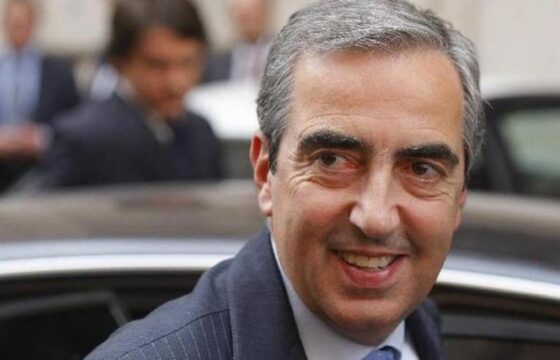Wall Street Journal: Ciao, Monti (o arrivederci, se vinci le elezioni)
Pubblicato il 28 Dicembre 2012 - 08:00 OLTRE 6 MESI FA
ROMA – “Ciao Monti“: è il titolo di un editoriale del Wall Street Journal. Datato 11 dicembre, pone una questione che la “salita in campo” lenta ma inesorabile del premier uscente Mario Monti non ha risolto nei successivi venti giorni. Questa: “L’Italia ha bisogno di un presidente del Consiglio riformista con un mandato chiaro”. Le riforme vanno fatte da una classe politica legittimata dal voto degli elettori, e non calate dall’alto da un’èlite di tecnocrati.
L’unica via per “mister Monti”, secondo il Wsj, è una “presa democratica del potere“, magari approfittando, nel campo del centrodestra, della debolezza di Silvio Berlusconi, che per il quotidiano americano ha “visto la propria reputazione ridursi a brandelli” in questi ultimi anni. Insomma Monti deve vincere le elezioni, oppure non potrà pretendere di imporre la propria famosa “agenda“.
An early election in Italy appears likely after Prime Minister Mario Monti tendered his resignation over the weekend, and Italian stocks and bonds sold off Monday on the news.
It tells you something about the state of Italian politics that what markets seem to fear most is an outburst of democracy. But maybe the real lesson here is that Italy—and the rest of Europe—needs a political class that knows how to generate popular momentum for economic reform, rather than constantly seeking to impose it from above.
Mr. Monti’s resignation comes in the wake of Silvio Berlusconi’s announcement that he would seek the premiership for a fourth time. Last week, Mr. Berlusconi’s party, the People of Liberty, abstained from key votes in the Italian Parliament in protest of the Monti government’s economic policies, although it isn’t clear what alternative his parliamentary group is proposing. Mr. Monti informed President Giorgio Napolitano that he interpreted this protest as a vote of no-confidence and so would resign as soon as next year’s budget is passed.
Mr. Monti has cultivated a reputation as a nonpartisan, technocratic leader, but there may be an element of electoral gamesmanship in the timing of his decision to step aside. A rushed vote gives Mr. Berlusconi less time to orchestrate a comeback, and it’s no secret that there’s little love lost between the PM and his predecessor.
That puts Pier Luigi Bersani, the newly elected leader of the center-left Democratic Party, in position to win elections now expected early next year. Mr. Bersani told this newspaper Saturday that if elected he would not challenge the policies put in place by Mr. Monti. But he is likely to be dependent on the parliamentary support of Italy’s far left even if he wins, so the window for economic liberalization in Italy seems likely to close with Mr. Monti’s departure.
As for Mr. Berlusconi, he once ran as a supply-side reformer, promising sharply lower tax rates and sweeping economic reform. On that platform, he twice won impressive electoral victories. His third time around he offered a more modest platform. But the true shame of his time at the top of Italian politics is his failure to deliver on those promises when he had a clear mandate to do so. Now his party is down by double digits against Mr. Bersani.
Some saw in Mr. Monti a chance to achieve by technocratic means what the ordinary course of Italian politics had failed to deliver. But sweeping economic reform, if it is to be accepted in a democracy, must come with a mandate. Mr. Monti never had one and so was limited in what he could accomplish. Now, thanks to Mr. Berlusconi’s tattered credibility, the reformist right lacks a serious standard-bearer at a time when Italy needs one more than ever.




